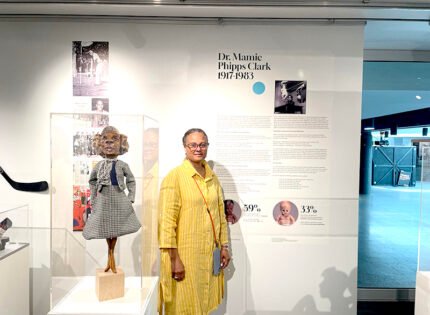Rosie Awori (LJI)
Samia Hassan has taken her place in the annals of history when she was sworn as president of Tanzania on March 19, following the death of her predecessor John Pombe Magufuli.
In assuming the position, she became the first female African Muslim  president on March 19.
president on March 19.
“It’s not a good day for me to talk to you because I have a wound in my heart,” said Hassan. “Today I have taken an oath different from the rest that I have taken in my career. Those were taken in happiness. Today I took the highest oath of office in mourning,” she said.
She said also that Magufuli, “who always liked teaching” had prepared her for the task ahead.
In assuming the highest office in the country, Hassan will be expected to make pivotal a decision on whether to acknowledge the coronavirus pandemic and procure Covid-19 vaccines.
Under the late president, the government refused to acknowledge the virus, refused to provide data and said it would not obtain any vaccines until the country’s own experts had reviewed them.
Hassan who has been serving as vice president since 2015 identified one of her most important tasks as convincing Tanzanians to unite as a nation.
“This is the time to stand together and get connected. It’s time to bury our differences, show love to one another and look forward with confidence,” she said. “It is not the time to point fingers at each other but to hold hands and move forward to build the new Tanzania that President Magufuli aspired to.”
So she has to come up with answers to the challenge of healing a country polarised during the Magufuli years and building her own political base within her party, Chama Cha Mapinduzi (CCM), in order to govern effectively.
She also has a mammoth task in ensuring that she tries to win the support of the party’s mainland Christians. Many analysts say her best strategy is maintaining the status quo and not embarking on a significant Cabinet reshuffle.
Samia Suluhu Hassan was born in 1960, in Makunduchi an old town on Unguja Island, in Zanzibar, the archipelago that forms part of the union of the Republic of Tanzania.
Her father was a teacher and her mother a housewife. She was privileged to go to school when very few Tanzanian girls, especially those in the predominantly Islamic area of Zanzibar, had the privilege of going to school.
After graduating from high school, she studied public administration and later obtained a Masters in community economic development.
Her political career begun in 2000, when was elected as a special seat member in the Zanzibar House of Representatives. Special seats are reserved for Tanzanian women leaders under the country’s quota system.
She then served as the minister of gender and children in former Amani Karume’s government in Zanzibar from 2000-2010. Following which, she was then appointed as minister of youth employment, and of tourism in Karume’s cabinet.
She was then elected Member of Parliament for Makunduchi, sitting in the National Assembly of Tanzania, and was later appointed minister of state for union affairs by President Jakaya Kikwete.
In 2010, she was elected Member of Parliament for Makunduchi, sitting in the National Assembly of Tanzania, and was appointed minister of state for union affairs by former President Jakaya Kikwete.
Under this regime she also served as vice chairperson of the Constituent Assembly, a body formed to discuss Tanzania’s proposed new constitution. The new constitution has yet to be passed with many within the CCM including Hassan wishing to maintain status quo.
In the 2015 elections, the late President Magufuli nominated Hassan as his running mate making her the first female vice-president.
Usually the role is largely ceremonial however, when she assumed office, she represented Magufuli at many international meetings and engagements.
These included the East African Community and Southern African Development Community summits. The reason for her extended international travel was because the late president rarely traveled abroad.
Consequently, she received immense international exposure, a factor that could influence how she governs going forward.
Her leadership style is seen as a potential contrast from Magufuli, a brash populist who earned the nickname “Bulldozer” for muscling through policies and who drew criticism for his intolerance of dissent, which his government denied.
However, many also see that the significance of her background as a Muslim woman will be encouraging to many young women around the world.
















